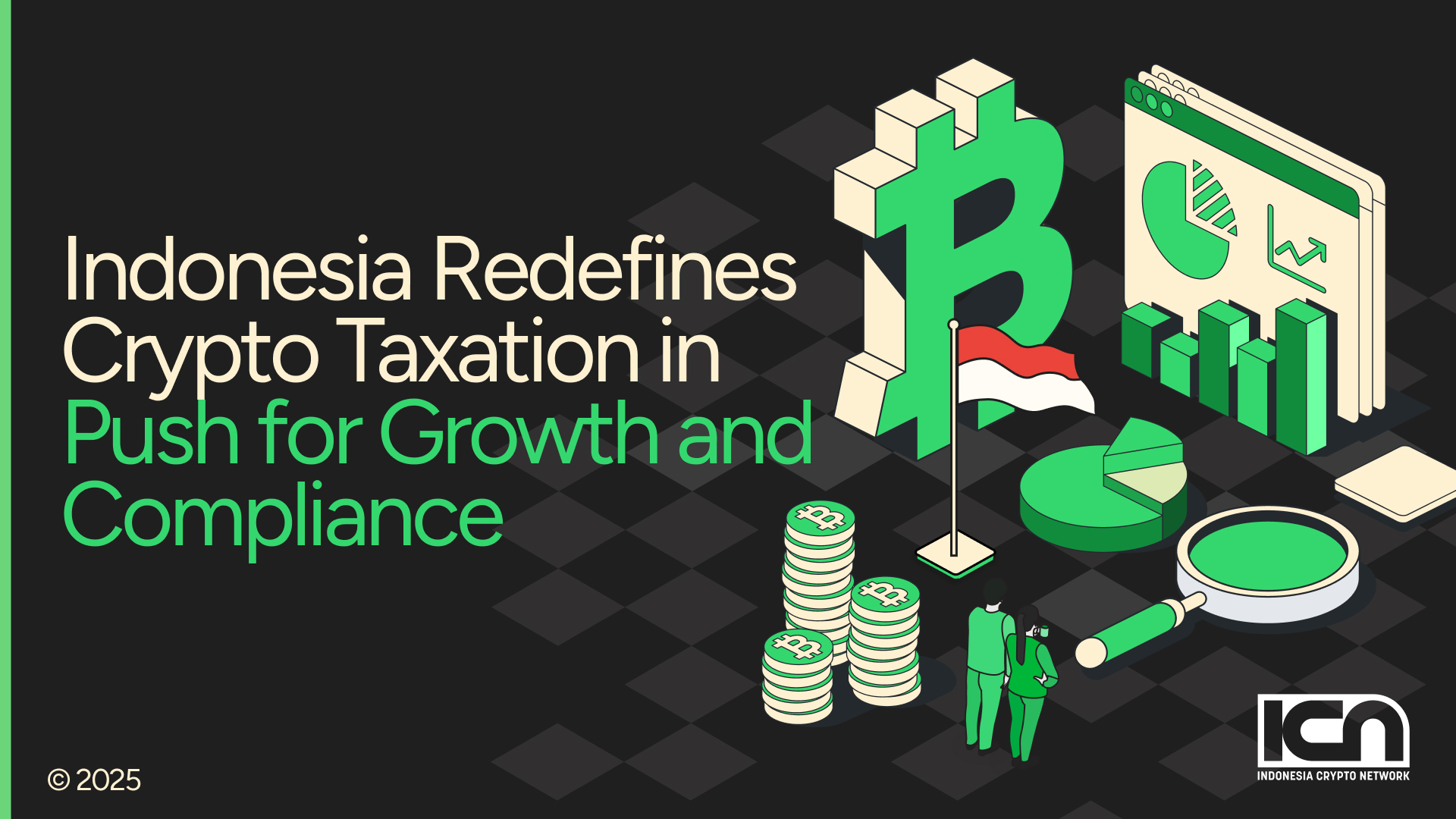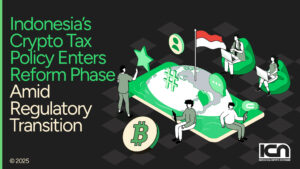Indonesia has entered a new phase in its digital asset economy, rolling out sweeping reforms that scrap VAT on crypto trades and hike income taxes for transactions under Finance Ministry Regulation (PMK) No. 50/2025. Effective August 1, the regulation aims to simplify compliance, broaden the state’s tax base, and give local exchanges a home-court advantage.
Crypto, once treated as a commodity under the Ministry of Trade, is now on track to be regulated as a financial asset under the Financial Services Authority (OJK)—a shift expected to bring more robust oversight and transparency. According to the Directorate General of Taxes (DJP), Indonesia collected IDR1.2 trillion in crypto taxes by March 2025, signaling how critical the sector has become in the nation’s fiscal planning.
Read more: Indonesia’s Crypto Tax Revenue Surpasses IDR 1 Trillion
Rethinking Crypto Taxation
Under the previous framework, crypto transactions were subject to a 0.11%–0.22% VAT and a final income tax of 0.1%–0.2%, with even higher rates applied to foreign platforms. The structure drew criticism for being regressive and redundant.
PMK 50/2025 introduces significant changes to the taxation of crypto assets in Indonesia. One of the most notable updates is the complete removal of the VAT layer on crypto transactions. By aligning crypto with securities and excluding it from the list of taxable goods, this revision directly addresses concerns surrounding the inefficiencies of the previous tax regime.
In exchange, the government raised the Final Income Tax (PPh Final) rates. Transactions conducted through licensed domestic platforms are now subject to Article 22 Income Tax at a rate of 0.21%, up from 0.1% under PMK 68/2022. Meanwhile, transactions through foreign or unregistered platforms face a higher rate of 1%. These rates apply to all types of crypto transactions—whether paid in fiat currency, crypto-to-crypto swaps, or other forms of asset transfers.
This tax is final and must be withheld, deposited, and reported by Electronic Trading System Operators (PMSE). The regulation also applies to other parties earning income from crypto-related activities, including miners and service providers.
It’s important to note that if a transaction is executed via a foreign platform that also imposes tax in its home jurisdiction, the foreign tax cannot be credited against the tax owed in Indonesia. Taxpayers are still required to pay the full amount of PPh due under Indonesian regulations, without any deduction.
While the increase in income tax rates may seem burdensome, the government’s strategy is clear: simplify transaction tracking, enhance compliance, and encourage market participants to remain within the regulated domestic ecosystem.
Read more: Indonesia’s Crypto Tax Policy Enters Reform Phase Amid Regulatory Transition
Industry Voices and Concerns
While regulators hailed the reform as a milestone for transparency and enforcement, industry players offered more cautious optimism.
Yon Arsal, Tax Compliance Advisor at the Ministry of Finance, defended the government’s choice of a final tax model, noting the administrative inefficiencies of capital gains taxation in the current ecosystem.
“In many countries, capital gains apply. But that requires taxpayers to assess profit or loss on every trade. Given the current bookkeeping limitations, a final tax offers a simpler route,” Yon said during a July 31 briefing.
“As the market matures and data improves, we’ll revisit the capital gains approach,” he added.
Calvin Kizana, CEO of Tokocrypto, praised the legal clarity but warned of potential friction in investor behavior.
“It’s important to note that the final income tax model has its drawbacks, as it applies even when investors incur losses unlike a capital gains tax which only applies to profits,we hope future policies better reflect fairness and the dynamic nature of the digital economy,” said Kizana.
Fiscal Impact and Local Advantage
The regulation could generate significant new revenue. With annual crypto transaction volumes expected to surpass IDR 250 trillion, the final income tax alone could yield over IDR 525 billion per year. This figure excludes revenue from VAT on mining and service fees.
According to the latest report from the Directorate General of Taxes (DJP), cumulative crypto tax revenue reached IDR 1.2 trillion as of March 2025. Annual collections from 2022 to 2025 were IDR 246.45 billion, IDR 220.83 billion, IDR 620.4 billion, and IDR 115.1 billion, respectively. Of the total, IDR 560.61 billion came from Article 22 income tax (PPh), while IDR 642.17 billion was collected from domestic value-added tax (VAT).
By applying higher tax rates to offshore transactions, the regulation is designed to encourage users to trade through licensed domestic platforms. This shift may result in a competitive advantage for local exchanges and support the development of a more consolidated and regulated crypto industry in Indonesia.
Strategic Outlook
The overhaul signals a broader institutional shift: crypto is no longer fringe. It’s a taxable, trackable, and now—arguably—preferable asset class within Indonesia’s digital economy.
By offering legal clarity, preferential treatment for domestic players, and improved enforcement mechanisms, PMK 50/2025 sets the stage for a more integrated and mature crypto ecosystem. While fairness and long-term alignment with global best practices remain issues for future dialogue, the regulation is a strategic, if imperfect, leap forward.
Want to stay compliant while growing in Indonesia’s booming crypto economy?
We simplify the regulations, connect you with key stakeholders, and help your project succeed where it matters most. Fill out our form to get started.


